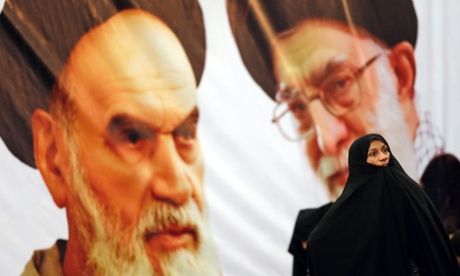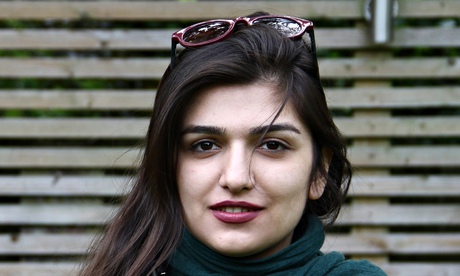Iran’s president is under pressure to appoint female ministers as he mulls a cabinet reshuffle before his swearing-in ceremony on Sunday.
Hassan Rouhani’s all-male list of ministers during his first term in office dismayed his base even though the moderate cleric appointed a number of women as vice-president, a comparatively less senior position in Iran’s political hierarchy.
As jockeying intensifies before the unveiling of his new cabinet, concerns have grown that Rouhani may give in to pressure from hardliners and not include women as ministers. Expectation is particularly high because he ran on a reformist agenda. Under the Iranian constitution, the Majlis (parliament), would have to approve his appointees.
Tehran is preparing for a big inauguration ceremony after Rouhani’s landslide victory in May. Officials have declared Sunday a bank holiday as eight presidents and senior diplomatic delegations gather in the Iranian capital to mark the beginning of his second term in office. In a sign of thawing relations, the UK is for the first time sending a minister of state, Alistair Burt, who is in charge of the Middle East and North Africa at the Foreign Office.
Despite shortcomings, one existing Rouhani appointee – his vice-president for women and family affairs, Shahindokht Molaverdi – has won the support of some of the country’s most respected women’s rights campaigners. Her hands have largely been tied in the past four years as she came under huge pressure from hardliners, who threatened her with prosecution.
Molaverdi said in April that as many as three women would be appointed as ministers but she has sounded pessimistic more recently and it is not clear if she would keep her job.
Mohammad Bagher Nobakht, the Rouhani administration’s spokesman, said on Tuesday, that “the number of women in the cabinet would not go down”, the semi-official Isna news agency reported, but he sent mixed signals over ministerial appointments, suggesting there may not be any women as ministers at all.
“If there would be no women ministers in the cabinet, that does not mean we’re not using the potential of women [in the government],” he said. “Women will still play a significant role. It’s an injustice to women to think that they should only be used to fill ministerial roles.”
The taboo of appointing female ministers after the 1979 Islamic revolution has in fact already been broken. In 2009, former hardline president Mahmoud Ahmadinejad nominated three women as ministers amid opposition from conservative MPs and some senior clerics. One of his appointees, Marzieh Vahid-Dastjerdi, was approved and she became the country’s first post-revolutionary female minister, serving as minister of health and medical education.
Ghoncheh Ghavami, a leading women’s rights activist based in Tehran, said “it is much more important to have gender-sensitive and feminist policies than just merely relying on descriptive representation” but nevertheless having female ministers is still important because “Iran’s political system is too male-oriented”.
She said: “This structure has eliminated women on the excuse of meritocracy and experience but it looks like that main criteria for them is being male. That’s why appointing female ministers is symbolically important and would send a powerful signal in a country where politics still originates from men.”
Ghavami said Dastjerdi’s appointment meant Rouhani had run out of excuses, especially now he was facing a friendlier parliament. She said even a conservative figure such as Dastjerdi performed better than her male colleagues and was removed before too long after a spat with Ahmadinejad.
“Conservatives, however, still have traditional views about women, their priority is for women to stay at home and take care of their kids. Even their female parliamentarians held such a world view and were pursuing policies that were discriminatory towards women,” she said.
Women’s rights campaigner Fatemeh Sadeghi is among six speakers invited to a discussion panel in Tehran this week called Breaking the Glass Ceiling, in reference to Iranian women in senior managerial roles. She believes symbolic appointment of women as ministers will not resolve challenges faced by women in Iran.
“The presence of one or two women in the cabinet won’t much advance women’s rights and the experience of Mrs Mowlaverdi shows that until we pursue gender [equality] policies, we won’t see a massive change or transformation for women,” she said.











